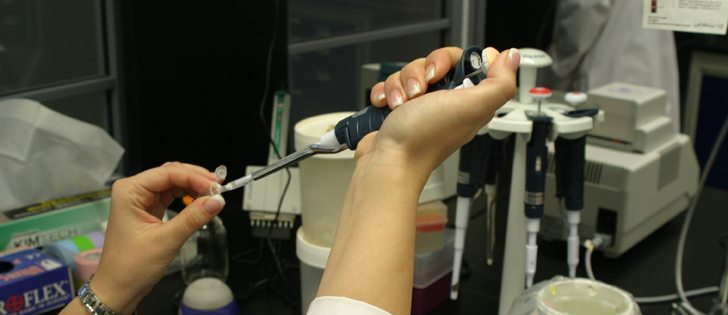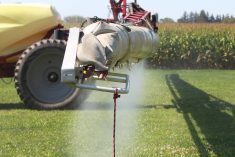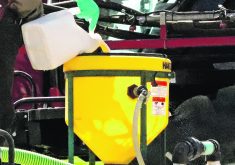Last month, the U.S. Food and Drug Administration said it would begin testing foods and grains for residues of glyphosate.
The testing, which is expected to start this spring, will be the first time the FDA has monitored food for glyphosate, the active ingredient in the herbicide Roundup.
The FDA decision was widely reported in the media and many environmental groups lauded the decision, saying “it’s about time.”
It didn’t receive the same attention, but the Canadian Food Inspection Agency started testing for glyphosate residues last year.
Read Also

Manitoba community projects get support from HyLife
HyLife Fun Days 2025 donated $35,000 each to recreation and housing projects in Killarney, Steinach and Neepawa earlier this fall.
“(CFIA) initiated a targeted testing program for glyphosate residues in various food commodities in May 2015,” an agency spokesperson said in an email.
“CFIA has planned to test approximately 700 samples consisting of a variety of juice and juice blends, grains and grain products … and a wide variety of fruit and vegetables this fiscal year. We anticipate conducting a similar survey in 2016-17…. Additionally in May 2015, the CFIA initiated a targeted survey of approximately 2,500 samples, looking at levels of glyphosate in bean, pea, lentil, chickpea and soy products as well as less commonly consumed grains such as barley, buckwheat and quinoa.”
Consumer and environmental groups in North America have demanded more rigorous testing of glyphosate residues for years, and pressure on the FDA and CFIA intensified in 2015.
In March last year, the International Agency for Research on Cancer (IARC), an agency of the World Health Organization, reviewed published literature and classified glyphosate as a compound that “probably causes cancer in humans.”
The classification remains highly controversial. Individual toxicologists, crop science companies and government agencies slammed the IARC decision as biased and shoddy science.
In November, the European Food Safety Authority issued a report countering the IARC classification.
“This has been an exhaustive process, a full assessment that has taken into account a wealth of new studies and data,” Jose Tarazona, head of the pesticides unit with EFSA, told Reuters. “Regarding carcinogenicity, it is unlikely that this substance is carcinogenic.”
European scientists, politicians and environmental groups have gone to war over the conflicting reports, and the battle came to a head earlier this week in Brussels. EU members were expected to extend glyphosate’s registration in Europe for 15 years, but the decision was postponed until May. France and several EU countries oppose a re-authorization of glyphosate. Germany plans to abstain from any vote.
Meanwhile, the CFIA continues to collect data on glyphosate residues.
“CFIA has regularly been receiving results from the 700 National Chemical Residue Monitoring Program (NCRMP) samples,” a spokesperson said. “Once all results have been received, the data will be reviewed, analyzed and a comprehensive NCRMP report will be prepared. The CFIA anticipates having the report completed by March 2017.”
The CFIA report on pulses and grains will be released April 2017.
Contact robert.arnason@producer.com
















